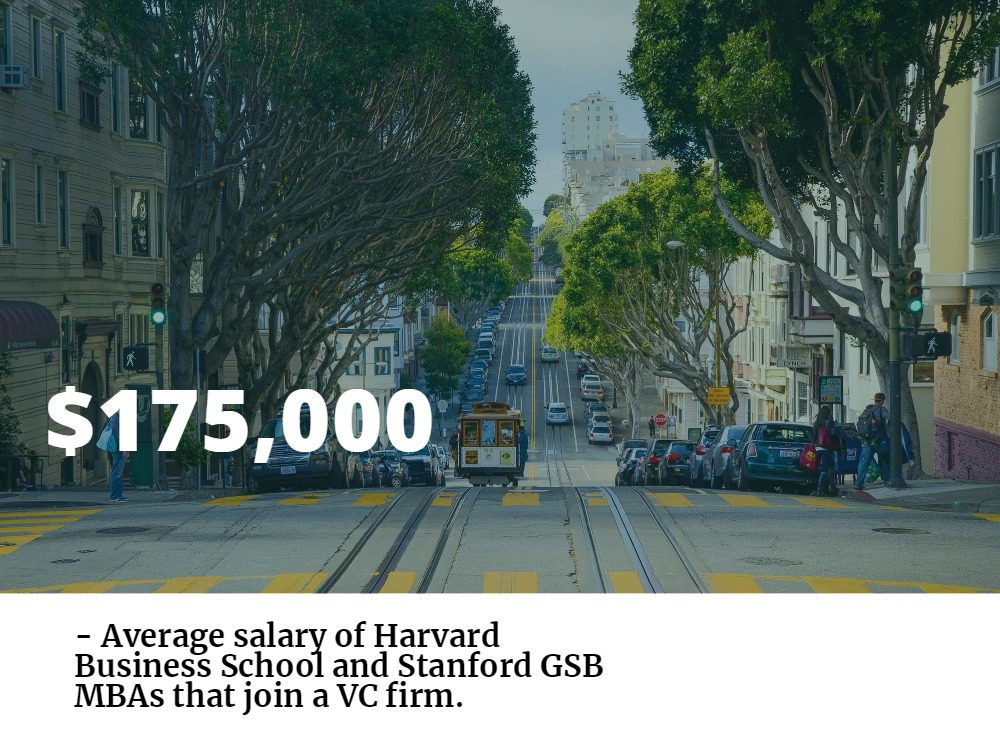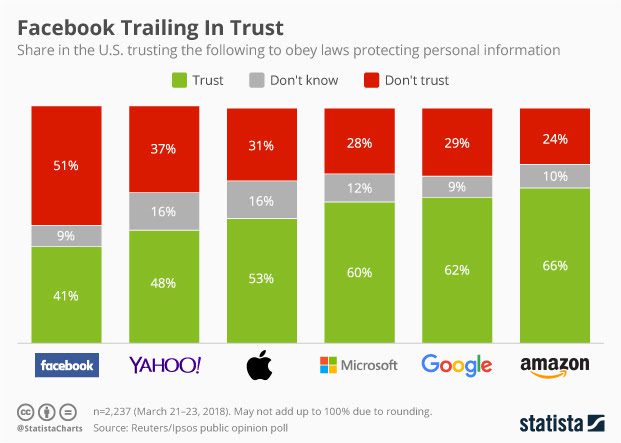Hot MBA Jobs: Venture Capital Associate

If you’ve ever used an app like Uber or Snapchat, odds are you’ve benefited from the work of a venture capital associate. Through skills like financial modeling, evaluations, and a little bit of luck, venture capital associates find ‘the next big thing’ and provide the money to make it happen. And though not all of these skills can be taught, top venture capital firms are looking to business programs to find the perfect candidate.
For students looking to join the venture capital industry, the path isn’t always an easy one. The level of experience required in the field means that very few students find venture capital associate positions straight out of their MBA programs. This doesn’t seem to deter those who are ready to work for it, however. Last year, private equity was ranked as the second-biggest employer for MBA graduates at the Harvard Business School.
Before you get started on the road to becoming a venture capital associate, let’s take a look at what the path to your dream job might look like.
The Venture Capitalist Job Role
Venture capital (VC) firms take on the risky but often lucrative job of searching the startup world for the next big thing. In exchange for providing capital infusions to startup companies in the early stages of their business, venture capitalists receive both oversight and ownership in the company.
For associates at venture capital firms, the job primarily involves sourcing new deals—setting up meetings with entrepreneurs and companies to find prospective investments—and supporting existing ones. As most roles in financial analysis go, VC associates are responsible for supporting all aspects of an investment, from the initial sourcing, modeling, and execution of a deal.
The exact type of work done by a VC associate may be determined by the type of for it is. For firms more focused on funding startups in their early stages, the associates work may be more concentrated on sourcing, while firms working more on late-stage financing will likely require more diligence and modeling from its associates.
Venture Capitalist Salary
While the exact roles of a venture capital associate may vary widely with the firm and its specialization, the general trend shows VC work to be an incredibly lucrative career. In 2016, graduates from top MBA programs like Stanford GSB and Harvard Business School joined VC firms at an average salary of $175,000.
According to Payscale, the average salary across all education levels for an associate at a venture capital firm is $92,067. The level of experience can make a big difference when it comes to the venture capital associate role, as well. Mid-career professionals in this role make on average 24 percent more than the national average, and experienced professionals up to 51 percent more.

Where Do Venture Capital Associates Work?
Venture capital firms can be found throughout the world in a variety of fields, leaving a wide range of opportunities open to up and coming VC associates. Certainly, studying and working near concentrated start up hubs like the Silicon Valley in California or the UK’s Silicon Fen can help boost an MBAs ability to get their foot in the door.
Still, a quick look at open venture capital associate positions open at the time of writing reveal diverse offerings spread throughout the country, from Palo Alto, CA to Philadelphia, PA to Durham, NC. MBAs looking to pursue a role in venture capitalism may also look for roles that allow them to pursue other areas of business they are passionate about, since VC firms are typically specialized in the type of startup they will invest in, be it fintech, health science, and other various fields.
Some of the world’s top corporations also have venture capital firms that will invest in companies related to their work. This includes companies like Google, Intel, Salesforce, Johnson & Johnson, and more.
The Venture Capital Associate Education
VC firms looking for associates are likely looking for MBAs who have had some previous experience on the workforce. While it’s not impossible for those without MBA degrees to begin as associates, opportunities for advancement to a partner level role are typically unusual without one. Typically, pre-MBA associates are expected to only work two to three years at a firm and then move on.
For post-MBA associates, it’s expected that these individuals will be working towards a partner level position. Firms will be looking for candidates with strong records in analysis who can demonstrate a deep understanding of markets and industries. Given that even MBA graduates will be expected to have a certain level of experience before joining a VC firm, these roles can be incredibly competitive. On-campus recruiting is uncommon for these firms, and typically only graduates from top level MBA programs are recruited to these positions. Basically, if you are determined to enter the venture capital industry, you will not only need an MBA education- you will need to prove you have the best MBA education.
The Top VC MBA Programs
To join the incredibly competitive field of Venture Capitalism, MBA graduates need a demonstrated record of financial analysis skills and a degree with the reputation to back it up. Some of the top schools for those looking to enter the VC or private equity fields overlap with some of the highest ranked MBA programs in the world. Schools that have strong relationships with investment banks and those with strong finance programs will likely offer the most opportunities for students looking for careers as VC associates. Some of the top schools for the field are listed below:
- Booth School of Business – University of Chicago: The full-time MBA program at University of Chicago’s Booth School of Business has a strong focus on venture capital and private equity through the Polsky Center for Entrepreneurship. The program provides strong networking opportunities for their MBAs through student organizations like the Entrepreneurship and Venture Capital (EVP) Group. The group offers career development, networking, activities, and speakers covering the most important topics in venture capital today.
- Kellogg School of Management – Northwestern University: MBA students at the Kellogg School of Management will find a huge focus on venture capitalism through the school’s Heizer Center for Private Equity and Venture Capital. Part of the center is the school’s Venture Lab, an experiential learning course that allows students hands-on experience with a quarter-long internship at venture funds, incubators or start-ups.
- Harvard Business School: The top-ranked Harvard Business School has one of the highest success rates in the world for students interested in venture capitalism. In 2015, roughly 14 percent of HBS graduates went into positions at private equity or venture capital firms. Organizations like the Venture Capital & Private Equity Club– which provides a speaker series, career treks, and an annual conference—allows students to get acquainted with the industry long before graduation.
Harvard Halts Round 3 MBA Admissions

Beginning this application season, Harvard Business School (HBS) will no longer feature a Round 3 for applicants to its MBA program, the school’s admissions director announced in a post to his blog this morning.
“After careful consideration, we have decided to focus our MBA application process on two rounds—with deadlines in September and January—and to focus our spring round on 2+2 applications,” Chad Losee, HBS managing director of admissions and financial aid wrote on his Direct from the Director blog. “To be considered for the Harvard Business School Class of 2021, you need to apply in either Round 1 (September 5, 2018) or Round 2 (January 4, 2019),” he added.
“We are trying to do what is in the best interest of the admits,” Losee explained to Clear Admit yesterday. The customary May release of Round 3 decisions has created a time crunch for incoming students in terms of securing housing, securing visas in the case of international students, and completing HBX Core, a set of online foundational courses all students are expected to finish prior to arriving on campus.
So, what do these changes mean for the next round of applicants? For starters, HBS will now admit its entire class in Rounds 1 and 2—with the exception of applicants to the 2+2 Program, the deferred admissions program for college students. The 2+2 deadline will still be in March.In addition to giving all admitted students adequate time to be fully prepared for fall enrollment, the decision to scrap Round 3 also reflects applicant behavior, Losee added. “One thing we have noticed over the last three years is that applicants are choosing this on their own,” he said. “Round 3 application numbers have been going down, and Round 2 application numbers have been going up.”
There are not plans to significantly change the timing of Rounds 1 and 2 this year, Losee said. “We might adjust the date a little bit for Round 2, just by a day or two,” he said. But the application deadlines for those two rounds will continue to be in September and January respectively.

Chad Losee, HBS managing director of MBA admissions and financial aid
As in the past, HBS will place some applicants on the waitlist as part of Rounds 1 and 2. As for whether the switch from three rounds to two will necessitate a change in terms of the overall size of the waitlist, time will tell, Losee said. “We never take for granted the people who are on the waitlist because we know they put a lot out there,” he said. “We try to keep the waitlist as small as possible and to let waitlisted applicants know as soon as possible—and that will continue to be true.”
Losee also noted that with the elimination of Round 3, some waitlist decisions could come earlier than they have in the past. “Until now we have needed to wait until Round 3 happens to make decisions with regard to our waitlist,” he said.
HBS Decision Comes as No Surprise
“Based on the multiple calls for Round 3 applicants from a number of leading schools this year, this decision by HBS comes as no surprise,” Clear Admit Co-Founder Graham Richmond said on hearing the news. “Today’s MBA applicants are increasingly applying early.” It’s a trend that has been evolving over the past 10 to 15 years, during which time Round 1 has slowly eclipsed Round 2 as the round of preference and the message from schools to “apply early” has gradually sunk in for applicants.
“It’s also likely a reflection of two new realities “ Richmond added. “First, the new challenges faced in the U.S. immigration policies, even for student visas. And second, the fact that more and more MBA students seek to spend the summer months in pre-MBA internships (as opposed to leisurely backpacking around the globe).”
These forces together with the messages from leading schools for “serious” candidates to apply early likely contributed to the elimination of Round 3 by HBS, Richmond concludes. “With that said, one can’t help but wonder if some Round 3 candidates—particularly the non-traditional sort who aren’t in the MBA pipeline from an early date—may fall ‘out of the process,’” he added.
Richmond added that he is not sure that every school will follow HBS’s lead and eliminate Round 3, however. “There are likely many applicants who won’t make the cut in Round 2 at the likes of Harvard, Stanford, and Wharton, who then may seek to submit late-round apps elsewhere,” he said. “As such, I don’t expect schools in the next tier (e.g. non-top-3) who are seeing declines in application volume to take this step.”
To read Losee’s complete post, click here.
This article has been edited and republished with permissions from our sister site, Clear Admit.
Harvard Business, Wharton NYU Stern Commencement Speakers Announced

As spring fully arrives, so do the business school announcements for commencement day. Clear Admit has already discussed the graduation speakers you can expect at Michigan Ross and Stanford GSB. Now, Harvard Business School, Wharton, and NYU Stern have also announced their graduation speakers.

Harvard Commencement
At Harvard Business School, Carla Harris, vice chairman of Morgan Stanley, will deliver the MBA Class Day address. Harris (MBA ’87) has worked for three decades at Morgan Stanley, holding influential positions in mergers and acquisitions as well as equity capital markets. She’s also active at the university as a member of the Harvard University Board of Overseers. In addition, Harris is the focus of an HBS case study about emerging female and minority asset managers.
- Date: Wednesday, May 23, 2018
- Location: Baker Lawn
Wharton Graduation
 Hamdi Ulukaya, the founder, chairman, and CEO of Chobani, LCC, will speak at the Wharton MBA graduation ceremony. Raised in eastern Turkey, Ulukaya launched Chobani in 2007 with the goal of making good food more accessible. Within five years, Chobani had become the number one best-selling Greek yogurt brand in the United States. Beyond his business success, Ulukaya has also had a positive impact on communities through donations to charities, innovative profit-sharing, and paid parental leave.
Hamdi Ulukaya, the founder, chairman, and CEO of Chobani, LCC, will speak at the Wharton MBA graduation ceremony. Raised in eastern Turkey, Ulukaya launched Chobani in 2007 with the goal of making good food more accessible. Within five years, Chobani had become the number one best-selling Greek yogurt brand in the United States. Beyond his business success, Ulukaya has also had a positive impact on communities through donations to charities, innovative profit-sharing, and paid parental leave.
- Date: Sunday, May 13, 2018
- Location: The Palestra
NYU Stern Commencement
 At NYU Stern, graduates can expect to hear from keynote speaker Sallie Krawcheck, the CEO and co-founder of Ellevest, a newly launched digital investment platform for women. Beyond her entrepreneurial work at Ellevest, Krawcheck is the chair of Ellevate Network, a global professional women’s network, and Pax Ellevate Global Women’s Index Fund, which invests in companies that advance women. She’s also a best-selling author and previously served as CEO of Merrill Lynch Wealth Management, Smith Barney, and Sanford Bernstein.
At NYU Stern, graduates can expect to hear from keynote speaker Sallie Krawcheck, the CEO and co-founder of Ellevest, a newly launched digital investment platform for women. Beyond her entrepreneurial work at Ellevest, Krawcheck is the chair of Ellevate Network, a global professional women’s network, and Pax Ellevate Global Women’s Index Fund, which invests in companies that advance women. She’s also a best-selling author and previously served as CEO of Merrill Lynch Wealth Management, Smith Barney, and Sanford Bernstein.
- Date: Friday, May 18, 2018
- Location: Theater at Madison Square Garden
This article has been edited and republished with permissions from our sister site, Clear Admit.
What are the Best Real Estate MBAs in Boston?

Despite episodic waves of unrest, real estate is a worthy investment. More importantly, real estate is a cornerstone of the world economy. The importance of understanding the intricacies and nuances of this complex field cannot be overstated.
In Forbes, Yolanda Barnes, who runs Savills World Research, said, “real estate is the pre-eminent asset class which will be most impacted by global monetary conditions and investment activity and which, in turn, has the power to most impact national and international economies.” For the B-school-bound, becoming fluent in real estate’s many facets can provide a valuable edge in nearly every area of business.
Below, we’ve laid out the best Boston real estate MBA options for those looking for careers in the industry.
Harvard Business School
It would be remiss to talk about business education in Boston without mentioning Harvard Business School. HBS is easily one of the most reputable business schools in the world. Forbes places the university in its top three “Best Business Schools.” For those pursuing real estate, Harvard MBA’s have access to the Harvard Business School Real Estate Club, which provides its members with opportunities for supplemental real estate education, training, and extensive networking. Harvard also hosts an annual Real Estate Weekend, wherein students can buy tickets to attend development workshops and fireside chats with industry experts.
F.W. Olin Graduate School of Business – Babson College
At Babson College’s F.W. Olin Graduate School of Business, MBA students can pursue the finance concentration, which offers several courses in real estate. Students can rake courses like Real Estate Financial Modeling, Real Estate Fundamentals, or Real Estate Development. According to recent Olin graduate employment statistics, 10 percent of the 2017 MBA class landed jobs in real estate. This number may not seem overwhelming, but it dwarfs the percentage seen in many MBA programs (usually about two to three percent).
Sloan School of Management – MIT
MIT’s Sloan School of Management offers an MBA that incorporates real estate education. Though the school also offers an MS in real estate development (MSRED) for those more focused on earning a degree in real estate than an MBA, the MBA finance track offers a different set of advantages. This track zooms in on the finance-related areas of real estate, such as investment, urban economics, and housing economics. The MBA real estate courses zero in on the financial component of the industry and the core MBA courses also help students build a broad foundation in business. MBA students pursuing a certificate in finance can take courses like Real Estate Finance and Investment and Real Estate Capital Markets.
What They’re Saying: Spring Break is Sadly Almost Over

While the East Coast of the U.S. is catching up with another pleasant April storm cyclone, the rest of the business school community is back at work, shedding off the sunburned skin of a spring break well had. With the end of the formal academic year drawing near, students are preparing for the home stretch.
Check out some of the things business schools around the U.S., Canada, and UK are saying about the end of spring break and what you need to know before the academic year closes out.
Spring Break is almost over. It’s time to start thinking about Summer! Register tpdayfor @BaruchCollege #summersession courses & finish your degree early! #BaruchSummer18 #BeBaruch #academicexcellence pic.twitter.com/UJWNEyy7kU
— Baruch College (@BaruchCollege) April 4, 2018
Snowy spring break! #LeBow MBA & MS students are in Romania meeting industry leaders, including @fitbit. Check our Instagram story for live updates. pic.twitter.com/anS73QiRQl
— LeBow College (@LeBow) March 26, 2018
It’s OFFICIALLY spring break! Our MBAs will be in China, Colombia, and Brazil getting a hands on #GlobalBusiness experience 🗺💼✈ pic.twitter.com/BDaPceTOCa
— Johnson at Cornell (@CornellMBA) March 31, 2018
From climbing volcanoes to discovering secrets of luxury marketing, spring break for some Questrom students was about enhancing their business acumen through cultural immersion. https://t.co/lA6oQsdOCB
— BU Questrom (@BUQuestrom) March 29, 2018
It’s extra quiet at the #RadySchool during Spring Break! We miss our students, but hope you are enjoying your break! pic.twitter.com/Kk2LaYMLk2
— Rady School (@RadySchool) March 28, 2018
What They’re Saying: The Facebook Fallout

It seems puzzling to say a company that is worth nearly half a trillion dollars is venturing somewhere near zero degrees Kelvin, but if you were only reading headlines this week you’d get the sense that Facebook isn’t looking so hot.
Since the break of the Cambridge Analytica scandal, the tech giant lost an estimated $100 billion USD in value, and its beleaguered founder Mark Zuckerberg lost an estimated $14 billion of his own worth. Fortunately for him, according to CNN, he’s still worth over $60 billion so he can easily afford more mayonnaise and butter sandwiches.
But the fallout is more than monetary. Trust in the social media company is at a critical low point, according to Statista data.

Janina Conboye at the Financial Times recently asked how the company may go about repairing its own image in “The MBA view: can Facebook fix its reputation?,” speaking with numerous business school faculty members, including London Business School‘s Jill Schlechtweg, who plainly says, “It is worth wondering whether Facebook can regain credibility at all. Arguably Mark Zuckerberg has evaded responsibility for the social costs of social media addiction, the proliferation of fake news, and now leaks of personal data for political ends.”
Check out how other business schools and industry experts are reacting the ongoing Facebook story below.
What @facebook knows about you apparently includes data about phone calls and messages. The revelation could make Facebook’s huge data scandal hurt more than ever. https://t.co/jActrbEB5i
— MIT Tech Review (@techreview) March 27, 2018
PSA: “Harvard Business School Prof. Shoshana Zuboff calls it “surveillance capitalism.” And as creepy as Facebook is turning out to be, the entire industry is far creepier. It has existed in secret far too long…” https://t.co/vSPlAyWnzu
— Mitchell Schneider (@Mitski) March 27, 2018
What Cambridge Analytica is accused of doing, Facebook and Silicon Valley giants like Google do every day, indeed, every minute we’re logged on. – https://t.co/8O9730vddo
— Mark Schaefer (@markwschaefer) March 29, 2018
In the wake of the Cambridge Analytica scandal, Apple is making their position clear on privacy. https://t.co/OLIl5ihtby
— FOX MBA & MS (@FoxMBA) March 28, 2018
.@profgalloway weighs in on #Facebook‘s handling of the Cambridge Analytica scandal via @barronsonline https://t.co/6zWqfAa3nk
— NYU Stern (@NYUStern) March 28, 2018
